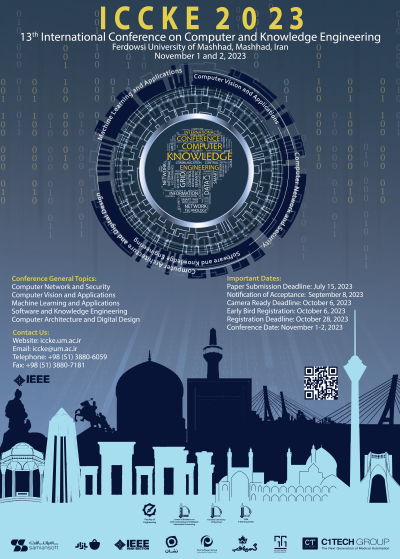0% Complete

Authors :
Keywords :
Abstract :
List of archived papers
Masood Ghasemi - Mahmood Fathy - Mohammad Shahverdy
Seyed Morteza Mirjebreili - Ata Solouki - Hamidreza Soltanalizadeh - Mohammad Sabokrou
Reza Damirchi - Amineh Amini
Hossein Yarahmadi - Mohammad Ebrahim Shiri - Hamid Reza Navidi - Arash Sharifi - Moharram Challenger - Hassan Piriaei
Maede Rezaei - AhmadReza Montazerolghaem
Amin Rouzbahani - Fattaneh Taghiyareh
Ali Farzipour - Omid Nejati Manzari - Shahriar B. Shokouhi
Mohaddese Nemati - Shiva Mahmoudzadeh - Mehdi Teimouri
Mohammad Ali Zarif - Javad Hamidzadeh
Pooyan Rahmanzadeh Gervi - Ahad Harati - Sayed Kamaledin Ghiasi-Shirazi




